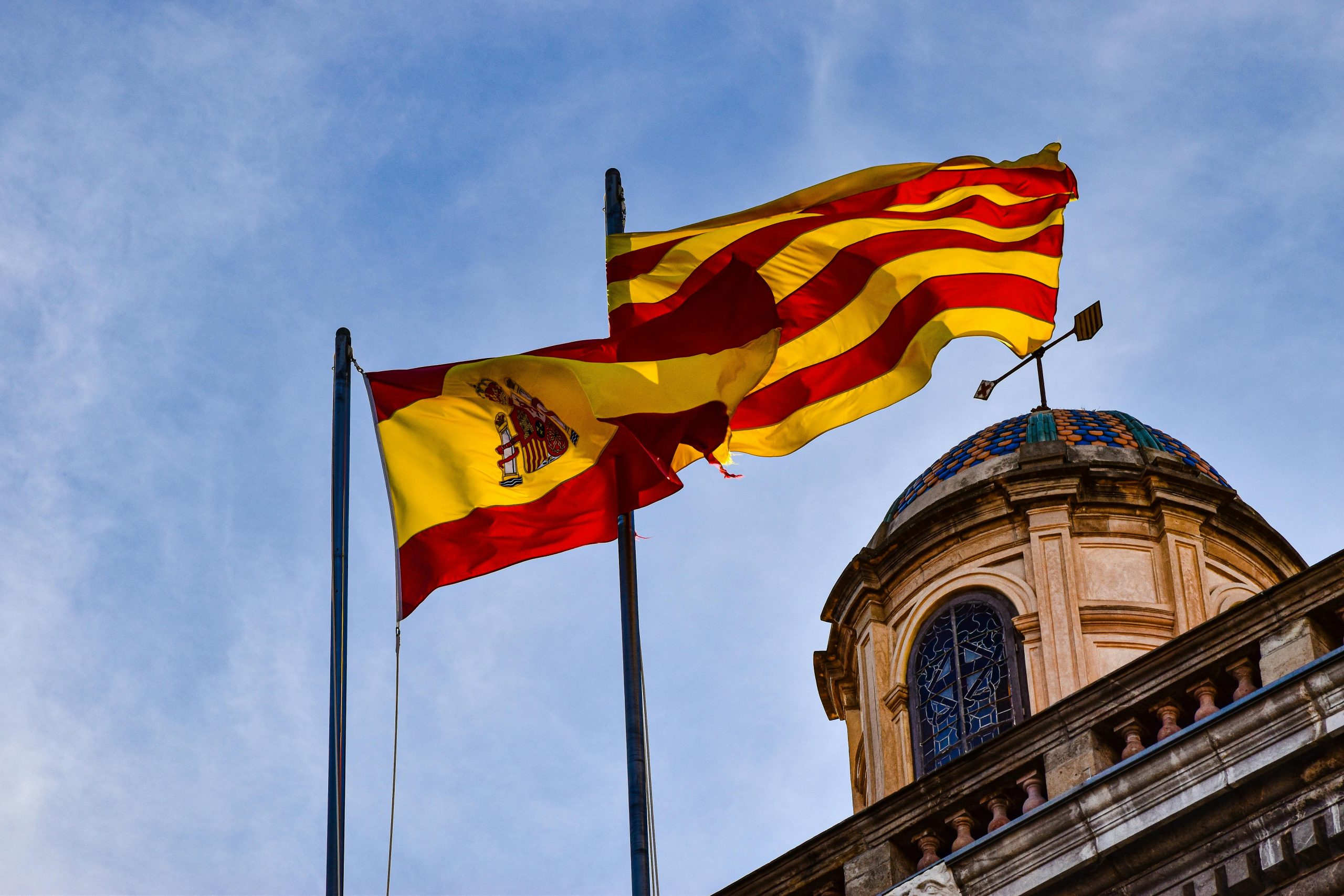Taxes in Belgium: Which should I pay?
Wondering which taxes in Belgium you have to pay as a company or an individual? We clear up all your doubts in this blog.
Knowing what taxes exist in Belgium is essential if you plan to open a business in the country or, if as an individual, you’re going to establish your residence here. This country has one of the highest tax burdens in Europe and one of the most complex tax systems on the continent. At Holafly, we’ve researched these taxes, both for individuals and companies. This way, you can make a comparison and see if it’s a suitable destination for your future plans.
Luckily, the Belgian government has also designed a tax benefit program to reduce the high rates that these taxes impose on the population. Therefore, if you meet the requirements, you can ease the burden a little and get help, such as exemptions or considerable reductions. Stay with us and read this interesting tax article about the land of waffles!
Taxes for individuals in Belgium
The Belgian system consists of a series of direct and indirect taxes that affect the consumption and income of all individuals or natural persons residing in the country. These individuals are defined as independent persons with fiscal rights and obligations, such as employees, students, digital nomads, retirees, etc. Below, we detail the most important taxes in Belgium:
1. Income tax (Impôt sur les revenus)
It is one of the most relevant taxes in Belgium for individuals. This is a progressive tax with rates that vary according to the annual income you earn. Belgium has the highest rates in Europe, ranking above Germany and the Netherlands, with a 50% rate for the highest incomes, which covers a relatively low threshold and therefore affects a greater number of people. Here are some popular examples to give you an idea:
| Rates | Income threshold | Example for €50,000.00 income ($54,400.00) |
|---|---|---|
| 25% | Up to €15,820.00 ($17,200.00) | €3,955.00 ($4,300.00) |
| 40% | From €15,820.01 ($17,200.00) to €27,920.00 ($30,400.00) | €4,840.00 ($5,280.00) |
| 45% | From €27,920.01 ($30,400.00) to €48,320.00 ($52,600.00) | €9,288.00 ($10,110.00) |
| 50% | Over €48,320.00 ($52,600.00) | €840.00 ($915.00) _________________________________ Total: €18,923.00 ($20,605.00) |
2. Social security contributions
Individuals, whether employees or self-employed, must contribute to social security with small contributions based on their monthly salary. These rates are directly applied to employees’ paychecks and serve to raise funds for the state to guarantee services to citizens such as health insurance, pensions, unemployment benefits, and other social services.
- Standard rate: 13.07% for employees (deducted from the gross salary) and 20-25% for the self-employed, depending on the income level.
3. Property tax (Précompte immobilier)
Taxes in Belgium also apply to properties owned by individuals or natural persons who have purchased them in the country. The rate of this tax depends on its cadastral value, which is governed by the location of the property, square footage, utility, etc. Here’s an example:
- Rate: Varies by region but is approximately 2% of the annual cadastral value.
- Example: For a property with a cadastral value of €20,000.00 ($21,800.00), the tax would be around €400.00 ($435.00) per year (€416.00 ($450.00)).
4. Value Added Tax (VAT, Taxe sur la valeur ajoutée)
VAT is one of the taxes in Belgium that applies to consumption. Each person who buys a product or hires a service will pay an additional percentage on top of the unit price, with the rate depending on the type of product. As we’ve seen earlier, it’s a way to raise money for the state from the entire population to provide guaranteed services:
| VAT tax | Group it applies to |
|---|---|
| 21% | Most goods and services (clothing, appliances, furniture, etc.). |
| 12% | Non-essential medicines. |
| 6% | For basic foods, books, and public transport. |
5. Gift and inheritance tax (Succession and Donation Rights)
When someone is transferred a property or a sum of money, this inheritance or donation is subject to gift and inheritance tax in Belgium. The tax percentage is based on the degree of kinship and the amount received in the transfer. We explain it in detail in this example:
- 3% rate: Up to €50,000.00 ($54,400.00), for close family members.
- Rate up to 30% or more: Amounts above €50,000.00 ($54,400.00) for distant or non-family members.
- Example: An inheritance of €100,000.00 ($108,800.00) to a direct child, they could pay 3% on the first €50,000.00 ($54,400.00) and 9% on the remaining amount. The total to pay would be €6,000.00 ($6,530.00).
6. Motor vehicle tax (Taxe de circulation)
If you own a motor vehicle in this country, you’ll need to pay the vehicle tax. The rate depends on the type of vehicle, engine power, and CO₂ emissions. For example, for a standard car with 100 kW, the annual tax would be around €350.00 ($380.00) (€364.00 ($395.00)).

Taxes for legal entities or companies in Belgium
Legal entities or companies must also comply with a series of specific taxes in Belgium for this type of organisation. Just like for individuals, these taxes are direct and indirect and are applied based on the annual earnings of the corporation.
If, as an entrepreneur, you frequently travel between your home country and Belgium or other destinations, we recommend themonthly plans from Holafly, where you won’t need to switch SIM cards, as it offers a global eSIM valid for all countries. Alternatively, for shorter stays, Holafly’s eSIM for Belgium allows you to get unlimited data only for the days you need it.
Important: If you are a frequent traveler and want to stay connected without worrying about expensive roaming or looking for a new SIM at every destination, Holafly’s subscription plans are for you. With a single eSIM, enjoy internet in more than 170 countries for a fixed price and no surprises on your bill. Travel without limits and connect easily and securely! 🚀🌍

1. Corporate tax (Impôt des sociétés)
This is one of the most relevant taxes for companies in Belgium and is applied to the annual profits from activity carried out within the country. It is the equivalent of income tax for individuals, and its rates are as follows:
- 20% rate: Applied to the first €100,000.00 ($108,800.00) in profits (€104,000.00 ($113,000.00)), for SMEs meeting certain requirements.
- 25% rate: For the rest of the profits.
- Example: A company with an annual profit of €150,000.00 ($163,200.00), will pay 20% on the first €100,000.00 ($108,800.00) and 25% on the next €50,000.00 ($54,400.00), totaling €32,500.00 ($35,300.00) (€33,800.00 ($36,800.00)).
- €64.90 ($70.70)
2. Value Added Tax (VAT)
Companies act as collectors of this indirect tax by adding an extra percentage to the invoices they issue to clients. This is an amount they charge extra and later report in their tax declaration to the tax system, essentially a loan they need to return to the government.
As we saw earlier with VAT for individuals, the VAT rates are 21% for general products, and 12% and 6% for certain essential products and services. For example, a company selling €10,000.00 ($10,880.00) worth of products per month at the standard rate of 21% will need to collect €2,100.00 ($2,285.00) VAT (€2,183.00 ($2,375.00)).
3. Social security contributions
Social security contributions are another tax in Belgium for companies. These institutions are obligated to pay contributions for each employee they hire, which helps the state raise funds to provide healthcare services like health insurance, retirement pensions, or unemployment benefits.
- Standard rate: Approximately 25% of each employee’s gross salary.
- Example: For a monthly gross salary of €3,000.00 ($3,265.00) (€3,120.00 ($3,400.00)), the company would pay €750.00 ($815.00) (€780.00 ($850.00)) in social security contributions.
4. Property tax
When a company buys a property related to its business activity, such as offices, warehouses, or commercial premises, property tax applies. Just like for individuals, the rate also depends on the cadastral value of the property.
- Example: For an office with a cadastral value of €50,000.00 ($54,400.00) (€52,000.00 ($56,500.00)), the tax could be around €1,000.00 ($1,090.00) per year (€1,040.00 ($1,130.00)).
5. Local and regional taxes
In addition to national taxes in Belgium, companies may be subject to local taxes, such as waste fees, business licenses, or environmental taxes. Rates vary depending on the location and activity of the company:
| Local tax | City | Rates |
|---|---|---|
| Waste fee | Brussels | A restaurant may pay between €800.00 ($870.00) and €1,500.00 ($1,630.00) per year (€832.00 ($905.00) and €1,600.00 ($1,740.00)). |
| Billboards | Antwerp | A 5-square-meter sign in a central area may cost €200.00 ($218.00) per year (€208.00 ($226.00)). |
| Business licenses | Ghent | A café might pay €300.00 ($327.00) per year (€312.00 ($340.00)), and a hotel with a restaurant could pay up to €2,000.00 ($2,180.00) per year (€2,080.00 ($2,270.00)). |
| Environmental tax | Flanders | A small factory would pay about €1,000.00 ($1,090.00) per year (€1,040.00 ($1,130.00)) for industrial wastewater. |

Tax benefits in Belgium
Despite the high taxes in Belgium that we’ve been analysing, the government has implemented a series of measures that incentivise setting up a business in the country with significant benefits and reductions. These aids are designed to foster competitiveness, stimulate job creation, and boost key sectors such as technology, research, and sustainable development. Let’s look at some of them:
| Tax benefit | Details | Example |
|---|---|---|
| Deduction of unpaid interest | Companies can deduct a percentage of their own capital as if it were an interest expense. | Between 0.5% and 1.5% of the capital. |
| Tax reductions for research and development (R&D) | For innovative companies in research. | 3.5% of costs invested in certified projects. |
| Special economic zones | Some areas like certain underdeveloped areas in Wallonia. | A 10% to 15% reduction in corporate tax for the first five years of activity. |
| Exemptions for startups and SMEs | To encourage the creation of small and medium-sized enterprises. | A reduced rate of 20% on the first €100,000.00 ($108,800.00) of profits (€104,000.00 ($113,000.00)). |
| Exemptions for qualified expatriates | To attract international talent. | Up to a 30% reduction in the salary subject to taxes. |
| Double taxation treaties | Belgium has tax agreements with over 90 countries. | You would only pay taxes in one of the countries. |
Frequently asked questions about taxes in Belgium
The standard corporate tax rate in Belgium is 25%. However, small and medium-sized enterprises (SMEs) that meet certain requirements can benefit from a reduced rate of 20% on the first €100,000.00 ($108,800.00) (€104,000.00 ($113,000.00)) of annual profits.
An individual living in Belgium must pay income tax, social security contributions, property tax, VAT, inheritance and donation taxes, and motor vehicle tax.
Not contributing to the payment of taxes in Belgium would have serious consequences such as: Fines, account blockages, inspections, asset seizures, and even legal consequences that could result in imprisonment.
The most common indirect tax is the Value Added Tax (VAT), with a standard rate of 21%. There are also reduced rates of 6% and 12% for certain essential products and services.
Belgium ranks among the countries with the highest tax rates in Europe, occupying second or third place depending on the type of tax being analysed.





 Language
Language 


















 No results found
No results found







